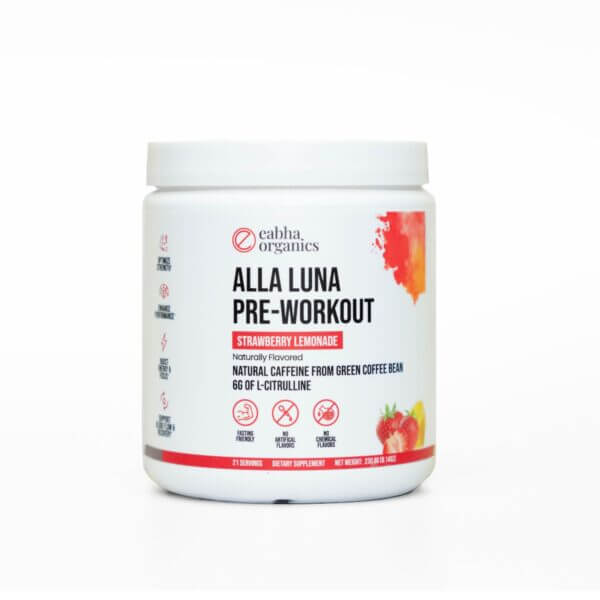News flash! Although common, PMS symptoms are not ‘normal.’ A recent survey by OnePoll, requested by Dr. Anna Cabeca (OBGYN and author), revealed that almost half of women have been affected by a hormonal imbalance. The study noted that the majority of respondents were unaware of the root cause of their symptoms at first.
Understanding a hormone imbalance and its symptoms is key to achieving a better quality of life. Many people may not even realize they have an imbalance or that there’s anything they can do about it. The good news is that there are many options, including holistic treatment and hormone supplements.
Here are some of the key signs you may have a hormone imbalance and what to do about it.
Irregular Menstrual Cycles
Ideally, the average menstrual cycle lasts 28 days, but of course, this can vary from woman to woman. The length of a ‘normal’ cycle can be anywhere between 21 to 35 days. Cycles that last longer than 35 days are generally considered irregular, which can be due to many reasons. The menstrual phase of your cycle, marked by the first full day of bleeding, lasts between two to seven days. Hormone imbalances can manifest in various ways. To better understand what is happening in our body, let’s discuss symptoms we may experience in each phase of our cycle.
Menstrual Phase (Approximately Days 1-7)
During our menstrual phase, our oestrogen, progesterone, and testosterone are at their lowest levels. This triggers the shedding of our uterine lining. Symptoms to watch out for during this time are:
- irregular or no period at all
- heavy or scanty bleeding
- period pain
- clotting
Follicular Phase (Approximately Days 8-13)
During our follicular phase, oestrogen and testosterone begin to rise. With the rise of these hormones, you should begin to feel more energy, and any symptoms of PMS start to fade away. Symptoms to watch out for during this time are:
- persistent fatigue
- anxiety
- depression
- mood swings
Ovulatory Phase (Approximately Days 14-21)
During our ovulatory phase, our oestrogen and testosterone reach their peak, to signal the release of an egg, and begin to decline as progesterone begins to rise. This phase is when we should feel our best, our libido should be high, and we should be fertile. Symptoms to watch out for during this time are:
- low energy
- low libido
- difficulty falling pregnant
Luteal Phase (Approximately Days 22-28)
During our luteal phase, progesterone and oestrogen levels rise after ovulation. Progesterone should be the dominant hormone with a higher progesterone to oestrogen ratio. At this time, our hormones and our body are creating an environment for conception by holding the uterine lining in place. This is the point at which PMS symptoms may be in full swing. Symptoms to watch out for during this time are:
- water retention
- bloating
- weight gain
- tender breasts
- hormonal acne
- mood swings
- sugar cravings
- irritability
- anxiety
- insomnia
The Big Picture
There’s a broad range of what’s considered ‘normal.’ That said, tracking your cycle will give you a better idea of what’s normal for you. If you begin to notice a pattern in your symptoms, it can give you a better idea of what hormones are out of balance.
Of course, many outside factors influence our cycles, such as stress, medications, pregnancy, polycystic ovarian syndrome, pelvic inflammatory disease, etc. (LINK TO ANOTHER BLOG) That’s why it’s crucial to track your cycles and work with a healthcare provider, especially if something seems off to you.
Unintentional Weight Gain or Loss
A hormone imbalance can also cause unintentional or persistent weight gain. You may have the same diet and lifestyle, and yet you keep gaining weight.
Signs of hormonal weight gain include a puffy or rounded face, abdominal or visceral fat, purple or pink stretch marks, and increased hunger and thirst.
On the other hand, unintentional and unexplained weight loss can also be a symptom of a hormonal imbalance.
If you notice any sudden changes in your weight, talk to your healthcare provider. Both unintentional weight gain and weight loss can be due to many different reasons related to your hormones, so getting to the root cause is important. Natural supplements and lifestyle changes can help create balance and treat the root cause of your symptoms.
Thinning Hair and Hair Loss
Another common sign is thinning hair and hair loss.
Women may experience more shedding than usual or a widening part in their hair. This may be caused by pregnancy, postpartum hair loss, PCOS, or female pattern baldness.
In cases of female pattern baldness, elevated dihydrotestosterone (DHT) can cause this hormone to attach to receptors on your hair follicles, which causes shrinking and inhibits hair growth. This condition has links to genetics, aging, and hormonal changes.
In women experiencing hair loss during or after pregnancy, this is usually due to decreased oestrogen levels.
Again, it’s important to recognize your symptoms and identify the root cause of your hair loss.
Stress and Depression
Anxiety, irritability, depression, and mood swings are all signs of hormonal changes and may indicate an imbalance.
Women may feel anxiety over situations they used to handle calmly in the past. They may feel more stressed or anxious or even more depressed than before.
A drop in your testosterone levels can cause reduced serotonin levels, which can increase depression, anxiety, and irritability. Elevated cortisol levels can elevate your stress levels and inhibit your ability to handle stressful situations. Other cases, involving thyroid disorders can largely affect people mentally, causing many of the symptoms mentioned.
Insomnia or Poor Sleep
Difficulty sleeping, disruptions in your sleep pattern, and insomnia also have links to hormonal changes and imbalances. For example, women may find it tough to fall asleep before their period. Progesterone is responsible for helping women feel relaxed, and when it drops before menstruation, it can affect your ability to fall asleep.
You may feel restless or unable to sleep well due to an imbalance.
Managing a Hormone Imbalance
These are all signs of a hormone imbalance, but to be sure of what’s causing your symptoms, it’s best to consult with a medical professional. They may order tests to check your hormone levels and look for irregularities.
There are options for managing these symptoms and maintaining balance. Total Balance is a hormone support supplement for men and women dealing with these issues. It supports adrenal health, optimizes hormones, and more.
Give it a try today and see the difference for yourself.










2 Responses